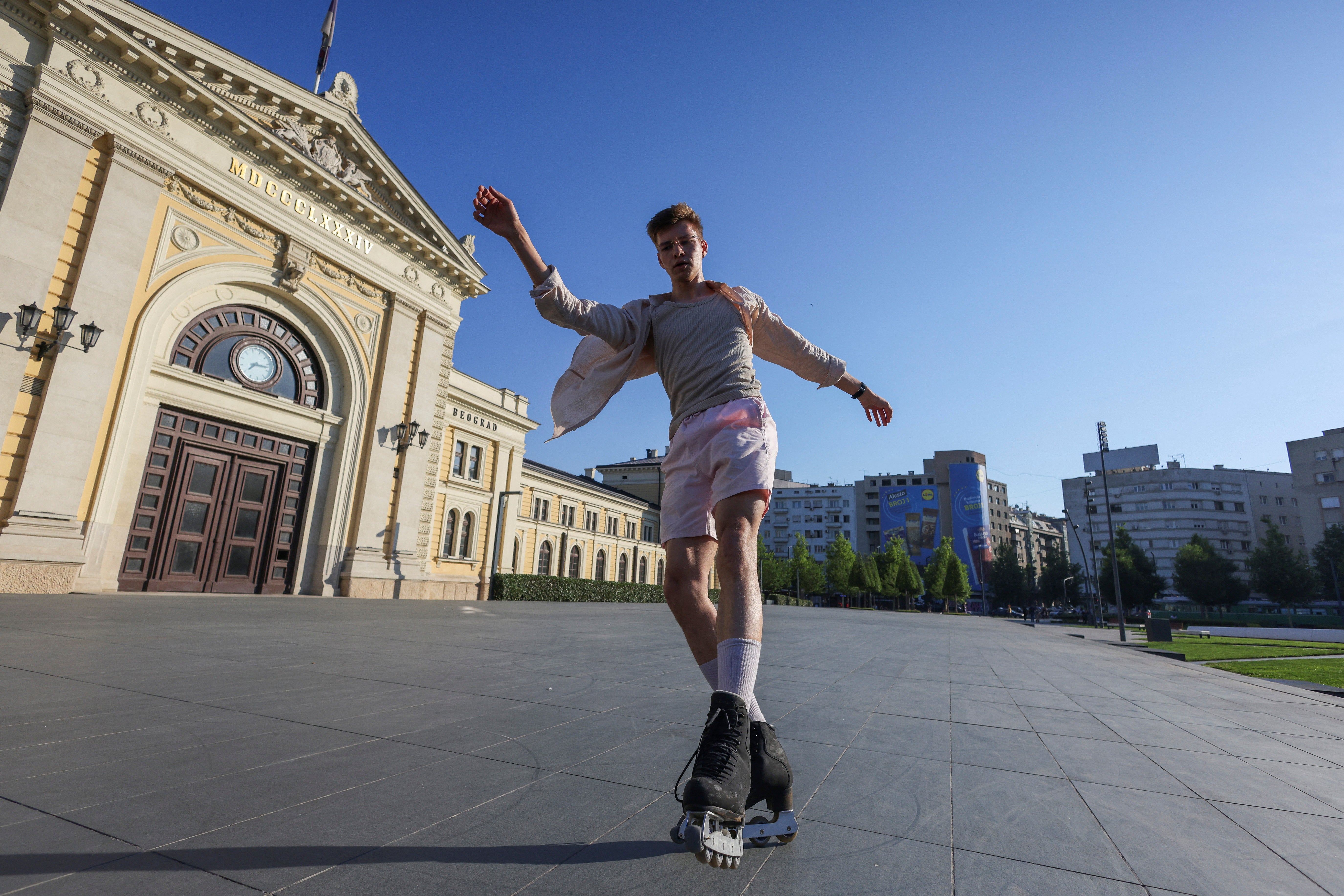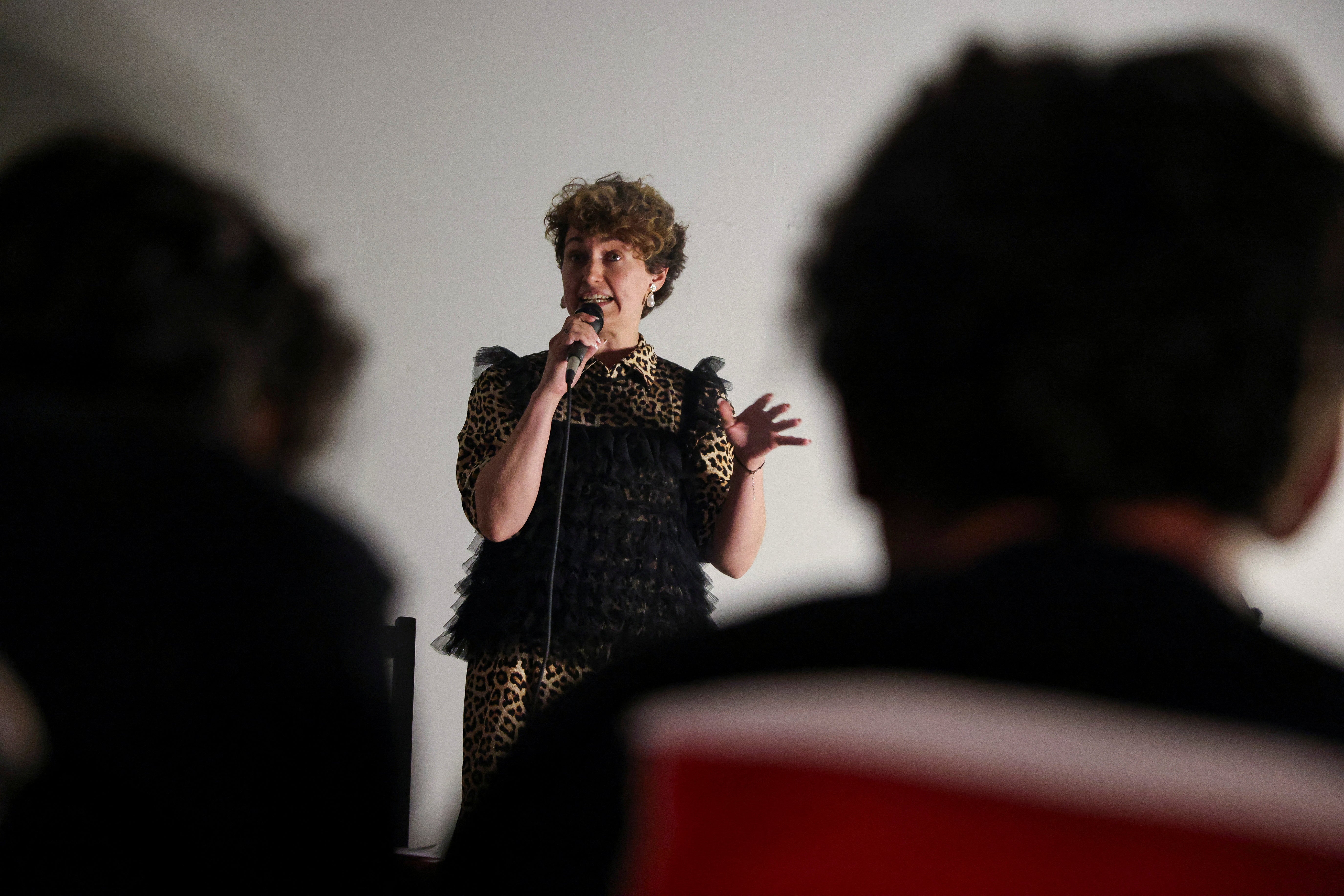A mini Russia emerges in Belgrade as thousands flee war
Many Russians struggle to integrate, prefer to maintain their cultural identity

On a sweltering summer morning in Serbia’s capital Belgrade, Vadim Morus, a professional ice skater from Russia, glides across an outdoor rink. Morus is 1,000 miles from his native Moscow, but is beginning to feel at home.
He fled Russia with his fiancee in 2022, part of a wave of tens of thousands who came to Serbia after Russia’s invasion of Ukraine. It’s a long way to come, but many chose Belgrade for its ancient cultural and religious ties to Moscow.
“There are few ice skaters in Serbia who can train others, so I have plenty of Serbian students,” Morus, 24, says. Since war began in Ukraine in February 2022, Russians fleeing conflict, conscription or the politics of President Vladimir Putin, have established a vibrant community in Serbia, according to interviews with two dozen immigrants and local officials.
While the actual number of Russians in Serbia is smaller than those who have fled to countries such as Germany, their presence is acutely felt in Belgrade, a city of less than two million people.
Russian-owned clubs, kindergartens, and medical practices have sprung up. Russians buy food in Russian shops. Russian bands, singers and comedians are performing in Russian clubs, and Russian artists showcase their work in Russian-owned galleries.
Between February 2022 and mid-2023, more than 30,000 Russians registered for temporary residence in Serbia, the latest interior ministry data shows. Officials did not provide data for the comparative period before this but said that the numbers represented a sharp increase.

During this influx, Russians established 11,081 businesses across various sectors, from internet-based services to hospitality and sports schools, according to Serbia’s business registry.
Viktor, 42, a veterinarian from St Petersburg, fled Russian mobilisation in the autumn of 2022. Without the necessary qualifications to practise in Serbia, he works as a handyman in Belgrade, exclusively serving Russians.
“I repair plumbing, electrical installations, windows, and even make furniture. I don’t really need Serbian customers,” says Viktor, who asks not to be named for fear about his family’s safety back in Russia.
Relations between Serbia and Russia date back centuries and remain cordial today, although Serbia is trying to join the European Union, which condemns Russia’s invasion of Ukraine.

After the First World War, thousands of so-called White Russians fled the Communists during the civil war to the newly formed Kingdom of Serbs, Croats, and Slovenes. Still, many struggle to integrate and prefer instead to cling to a mini Russia inside Serbia. Ironically many Serbians support Putin and do not share the views of those who fled.
“The call of Russian culture is too strong for Russian emigrants in the first generation to even want to fit into the society in which they found themselves, regardless of whether it is Serbian or Western,” says Belgrade-based political scientist Aleksandar Djokic.
Morus, the ice skater, hesitates to elaborate on his reasons for leaving Russia, but his fiance Alexandra Mashkanova steps in.
“We left due to ideological reasons. A few days after 24 February, we were trying to understand what was happening, and then we decided to leave,” she says.
Join our commenting forum
Join thought-provoking conversations, follow other Independent readers and see their replies
Comments
Bookmark popover
Removed from bookmarks